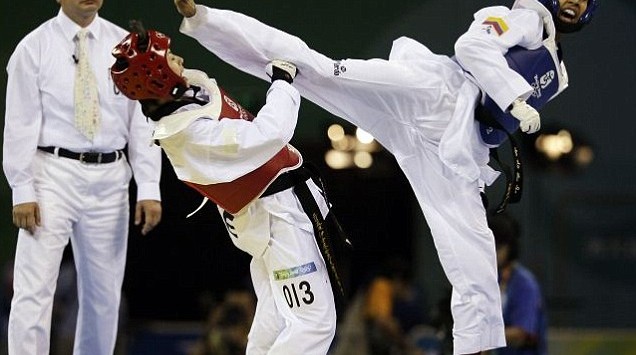Go to the Weekly Report for 29 November 2012
North Korea’s rocketeers reportedly are busy bees at the Sohae launch site. Why now?
When the DPRK starts to talk with the U.S., it does a political mid-air, spiral head-kick to look fierce. But no US-DPRK engagements are in the offing. The Obama Administration is waiting until the ROK and Japanese elections are over before re-engaging the DPRK.
There are no new sanctions in the air. There are no big military exercises in the ROK. The DPRK is toning down its critical rhetoric of Park Geun-hye, anticipating that if elected, she will be a tough but useful negotiating partner in 2013.
It isn’t because another rocket launch will make their long-range missiles reliable and accurate. As RAND’s Markus Schiller wrote recently, “The North Korean missile threat is largely a bluff.”
Continues Schiller:
- North Korea has likely launched Soviet/Russian-made missiles (that are old but proven designs) to maximize the appearance of performance.
- North Korea may never have tested missiles from its own production and any such indigenous missiles cannot have noteworthy reliability or accuracy.
- It cannot be ruled out that North Korea has nuclear warhead designs for its missiles, but without actual testing, the reliability of these warheads has to be assumed to be low.
- The main purpose of the program seems to be political–to create the impression of a serious missile threat and thereby gain strategic leverage, fortify the North Korean regime’s domestic power, and deter other countries, particularly the Republic of Korea and the United States, from military action.
I can attest to the domestic imperative. I was working at Unhari Village when the DPRK launched its first long-range rocket over Japan (August 1998). After Japan’s foreign Minister stated that Japan might attack the launch site, the DPRK went onto full alert. The MIGs flew, the tension was palpable, and then wound down. I was told that launch was motivated 85 percent by the scientific sector demonstrating its fealty to Kim Jong-il; 10 percent to poke Japan in the eye; and 5 percent as a neck kick before US-DPRK missile talks in Berlin.
I doubt these relative priorities have shifted over 14 years—except that the DPRK wants to match South Korea’s rocketry—the latter preparing to fire a Russian-made rocket from its Naro site on November 29, 2012.
Inaccurate, unreliable missiles are a primitive form of hard power. They have little military significance. The two Koreas political rocketry remind me of Edward Luttwak’s 1976 proposal to position cardboard missiles in Europe. These would have been cheap, recyclable, and potent symbols of lethal intention; but irrelevant to the real balance of forces. Likewise long-range missiles for the two Koreas.
As Schiller concludes:
Concerns about North Korea’s missile launches are overblown: Every launch further depletes the limited North Korean arsenals, and North Korea gains no real experience from these events. Since the purpose of the launches seems to be political, the United States and other nations should downplay or even ignore them.
–Peter Hayes, NAPSNet contributor


